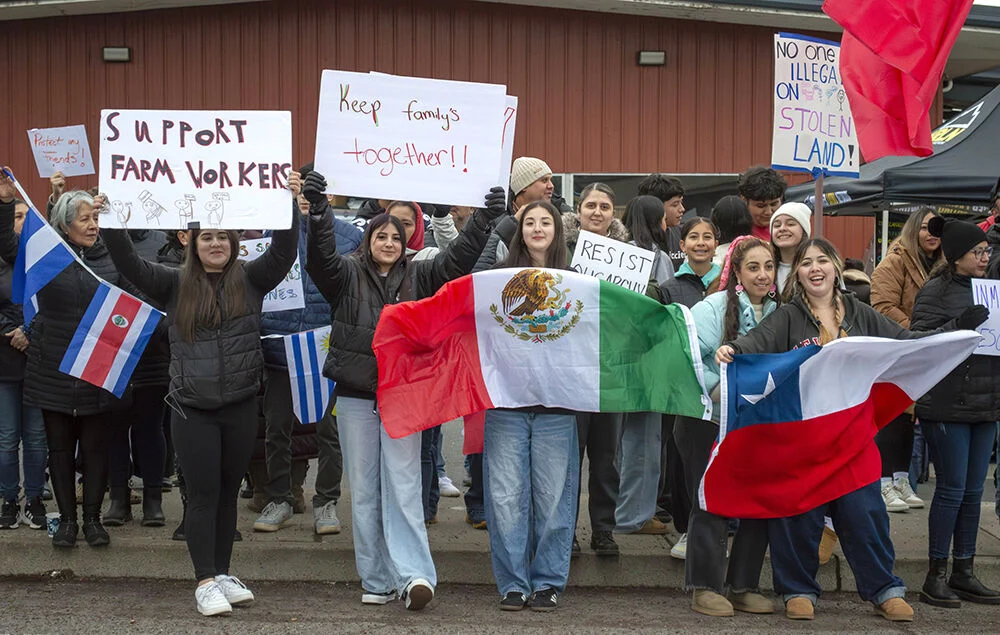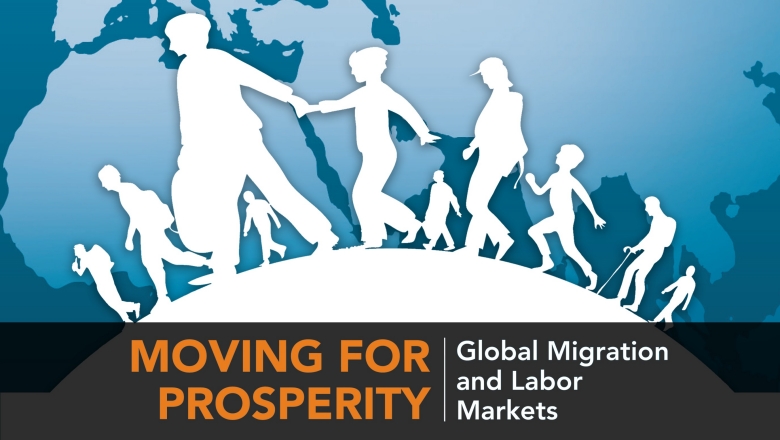Immigration is a journey of hope, resilience, and transformation. Across the globe, millions leave their homelands seeking safety, opportunity, or a fresh start, only to face complex visa systems, shifting policies, and the daunting task of cultural adaptation. In 2025, immigration remains a polarizing topic, with governments tightening borders while individuals strive to build new lives. This article explores the intricacies of visa processes, the challenges immigrants face, personal stories of perseverance, and practical advice for thriving in unfamiliar lands. Drawing on recent policy shifts, expert insights, and real-life experiences, it offers a comprehensive guide for navigating the immigration landscape.
The Evolving Landscape of Immigration Policies
In recent years, immigration policies worldwide have grown stricter, reflecting geopolitical tensions, economic pressures, and public debates. In the United States, the second Trump administration has intensified enforcement, with Immigration and Customs Enforcement (ICE) expanding detentions and deportations, even targeting individuals with legal statuses like green cards or humanitarian parole. Over 70,000 immigrants from Honduras and Nicaragua lost Temporary Protected Status (TPS) in September 2025, facing potential deportation after decades in the U.S. This policy reversal underscores the uncertainty many immigrants face, as conditions in their home countries are deemed “improved” despite ongoing challenges.
In Europe, Greece has emerged as a focal point for migration due to its proximity to conflict zones. The Greek government’s 2025 migration bill imposes mandatory two-year jail sentences for rejected asylum seekers, replacing earlier suspended sentences. With 56,066 irregular arrivals in 2024, Greece’s policies aim to deter unauthorized entry while streamlining deportations. Yet, only 3.4% of detained migrants were deported last year, highlighting enforcement gaps. These measures have sparked criticism from human rights groups, who argue they undermine asylum rights.
Other nations, like Canada and Australia, maintain point-based immigration systems favoring skilled workers, but even these pathways are tightening. Canada’s 2025 immigration plan reduced permanent resident targets by 20%, prioritizing economic contributions over humanitarian considerations. Global trends show a shift toward selective immigration, with countries balancing labor needs against public sentiment.
“Policies are becoming less about welcoming and more about control,” says Dr. Maria Gonzalez, a migration policy expert at the University of Oxford. “Immigrants must navigate a maze of rules that change overnight.”
Visa Processes: A Step-by-Step Guide
Securing a visa is often the first hurdle for immigrants. The process varies by country and purpose—work, study, asylum, or family reunification—but shares common steps. In the U.S., work visas like the H-1B require a job offer, employer sponsorship, and proof of specialized skills. Processing times have ballooned, with green card replacement wait times surging by 1,000% in 2025. Applicants should prepare for delays and ensure all documents—passports, contracts, and qualifications—are certified and translated.
In Greece, the Golden Visa program offers residency through a €250,000 real estate investment in designated areas, appealing to wealthier migrants. Asylum seekers, however, face a rigorous process, with applications processed in 30–90 days but requiring extensive documentation of persecution or danger. Legal representation is critical, as rejections now lead to detention.
Practical tip: Start by researching visa requirements on official government websites. For example, the U.S. Citizenship and Immigration Services (USCIS) portal details forms like the I-129 for work visas. Engage a lawyer for complex cases, and keep digital copies of all documents. Double-check deadlines, as missing them can lead to automatic rejections.
Challenges Immigrants Face
Immigrants encounter myriad challenges, from legal barriers to social isolation. In the U.S., the psychological toll of detentions and deportations is profound, compounding trauma from migration journeys marked by violence or family separation. A 2025 study by the American Psychological Association found that 60% of detained immigrants exhibited symptoms of chronic stress or PTSD. Culturally responsive mental health care is scarce, leaving many without support.
In Greece, overcrowded reception centers on islands like Lesvos strain resources, with 10,000 asylum seekers displaced after the 2020 Moria camp fire. Language barriers further complicate integration, as many services require Greek proficiency. Discrimination is another hurdle, with immigrants reporting bias in housing and employment.
Practical tip: Seek community organizations for support. In the U.S., groups like the Immigrant Legal Resource Center offer free legal clinics. In Greece, the Greek Refugee Council provides translation and asylum guidance. Build a network early—local NGOs and diaspora groups can ease isolation.
“I arrived in Athens with nothing but hope,” says Amina, a 28-year-old Syrian refugee. “The hardest part was feeling invisible. Finding a community gave me strength to keep going.”
Success Stories: Resilience and Achievement
Despite challenges, many immigrants thrive, transforming obstacles into opportunities. Take Javier, a Honduran TPS recipient in the U.S. Facing deportation in 2025, he leveraged his skills as a software engineer to secure an H-1B visa. “I studied at night, networked with tech firms, and refused to give up,” he says. His story reflects the 16% of U.S. immigrants who, per a 2023 KFF/LA Times survey, hold advanced degrees and contribute to industries like tech and healthcare.
In Greece, Fatima, an Afghan single mother, rebuilt her life after gaining asylum. She learned Greek through free community classes and now runs a small catering business. “Food was my bridge to this culture,” she shares. Her success mirrors that of 30% of Greek asylum seekers who, according to UNHCR, find employment within two years of approval.
Practical tip: Invest in language skills and vocational training. Programs like Canada’s Language Instruction for Newcomers (LINC) or Greece’s METAdrasi offer free courses. Networking is key—attend job fairs or join professional groups on platforms like LinkedIn.
Cultural Integration: Building a New Home
Adapting to a new culture is both exciting and daunting. Immigrants often navigate unfamiliar norms, from workplace etiquette to social customs. In the U.S., cultural nuances—like direct communication styles—can surprise newcomers from collectivist societies. In Greece, respect for family and tradition shapes social interactions, and learning basic Greek phrases like “Kalimera” (good morning) can open doors.
Jacqueline Abraham, an immigration paralegal of Nigerian descent, shares her dual perspective:
“Growing up, I balanced my parents’ values with American expectations. That taught me to connect with clients by respecting their cultural lens.”Her approach underscores the importance of cultural competence in integration.
Practical tip: Immerse yourself gradually. Join local events, like festivals or community dinners, to learn customs. In the U.S., libraries offer free cultural orientation sessions. In Greece, volunteering with NGOs can build connections. Be patient—cultural fluency takes time but fosters belonging.
Legal Guidance: Staying Informed
Immigration laws are complex and ever-changing. In the U.S., recent executive orders, like EO 14159, prioritize border security, rescinding protections for sensitive locations like schools from ICE enforcement. In Greece, the 2025 migration bill’s electronic ankle bracelets for undocumented migrants signal heightened surveillance. Staying updated is crucial, as policies can shift abruptly.
Practical tip: Follow reputable sources like USCIS, UNHCR, or the Greek Ministry of Migration. Legal aid organizations, such as the American Immigration Lawyers Association (AILA), offer resources for navigating changes. Document everything—from visa applications to interactions with authorities—to protect your rights.
The Human Cost of Policy Shifts
Behind every policy are human stories. Tomás, a Guatemalan migrant in the U.S., arrived unaccompanied at 14. After years in limbo, he faced exploitation in a garment factory. “I wondered why I wasn’t born here,” he says. His story, documented by UC Berkeley sociologist Stephanie Canizales, highlights the 140,000 unaccompanied minors apprehended annually at the U.S.-Mexico border, many of whom lack legal protections.
In Greece, Ahmed, a Sudanese asylum seeker, spent 18 months in a detention center before gaining refugee status. “I felt trapped, but I studied Greek laws to advocate for myself,” he says. His persistence paid off, landing him a job in construction. These stories remind us that policies shape lives, but resilience defines outcomes.
Looking Ahead: Hope Amid Uncertainty
Immigration in 2025 is a complex tapestry of challenges and possibilities. While stricter policies create barriers, opportunities exist for those who prepare. Knowledge is power—understanding visa options, legal rights, and cultural norms equips immigrants to thrive. Community support, from NGOs to diaspora networks, provides a lifeline. As Amina reflects, “This journey tests you, but it also shows you how strong you are.”
Whether you’re applying for a visa, seeking asylum, or adapting to a new culture, the path forward requires patience, resources, and resilience. By staying informed, building networks, and embracing new traditions, immigrants can turn challenges into stepping stones for a brighter future.














0 Comments